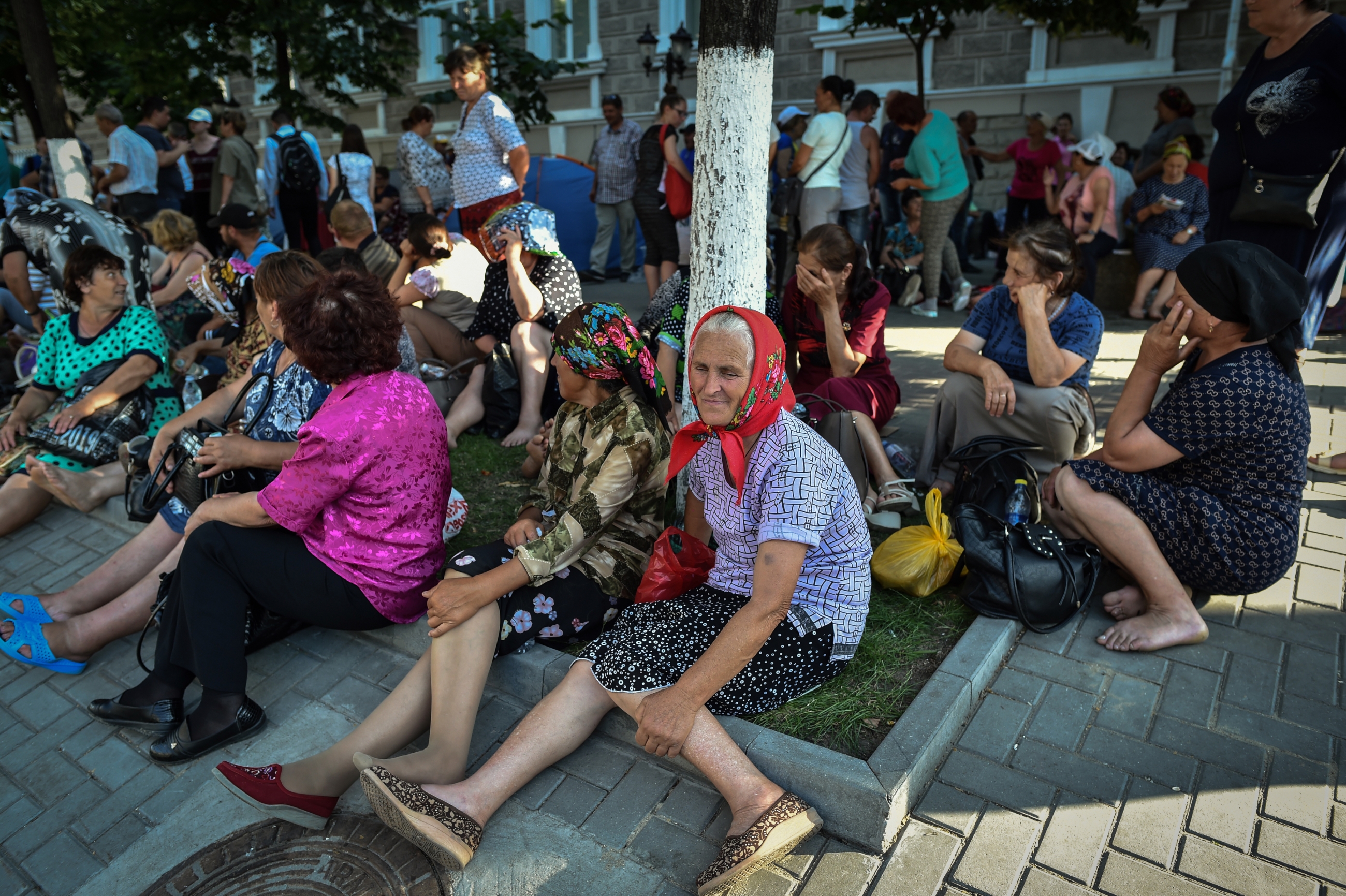Moldova says will move Israeli embassy to Jerusalem amid political crisis

Moldova announced on Wednesday its intention to move its Israeli embassy from Tel Aviv to Jerusalem, amid a political and constitutional crisis that is embroiling the small Eastern European country.
The former Soviet state would be the first European country to make the controversial move.
Two competing governments, each announcing itself legitimate, one backed by Russia and the other by the European Union, have been wrestling over Moldova’s presidency.
In his statement announcing Moldova's decision, Prime Minister Pavel Filip linked the move to his country's domestic political crisis.
On 9 June, Filip became the country’s interim president after a court suspended the Moscow-backed incumbent.
New MEE newsletter: Jerusalem Dispatch
Sign up to get the latest insights and analysis on Israel-Palestine, alongside Turkey Unpacked and other MEE newsletters
Filip swiftly dissolved parliament and announced a snap election to be held in September.
In a statement to the media, Filip wrote that his decision to move Moldova's embassy was adopted urgently, "taking into account the political instability and uncertainty in the country”.
“[These are] commitments that we have previously undertaken and we want to make sure they will be respected, regardless of what happens after the snap elections,” Filip said.
Analysts have linked the embassy move to a bid by Filip for support in Washington, which moved its embassy to Jerusalem last year.
Filip has also approved the controvesial sale of land in Moldova's capital for a new US embassy.
Once part of the Soviet Union, Moldova is a diplomatic battleground between Western Europe and Russia.
Though a small country largely lacking in influence, Moldova's embassy move would be highly controversial.
Israel claims Jerusalem as its capital city, however its eastern neighbourhoods were captured in the 1967 Middle East war and occupied ever since. Palestinians seek East Jerusalem as the capital of a future state, and the wider international community believes the city's status should be settled in peace negotiations.
In December 2017, US President Donald Trump unilaterally announced Jerusalem as Israel’s capital and then moved the his country's embassy from Tel Aviv in May 2018.
Trump's transfer of the US embassy to the disputed city sparked protests and a violent Israeli crackdown, and 128 states condemned it in a United Nations General Assembly vote.
Beside the US, only Guatemala has an embassy in Jerusalem. Paraguay has relocated its embassy to the city, but the Paraguayan President Mario Abdo said that his country’s mission would move back to Tel Aviv, backtracking on the previous government's decision.
Honduras and Romania have both announced plans to move their embassies from Tel Aviv to Jerusalem, but have not yet taken the step.
Middle East Eye delivers independent and unrivalled coverage and analysis of the Middle East, North Africa and beyond. To learn more about republishing this content and the associated fees, please fill out this form. More about MEE can be found here.




